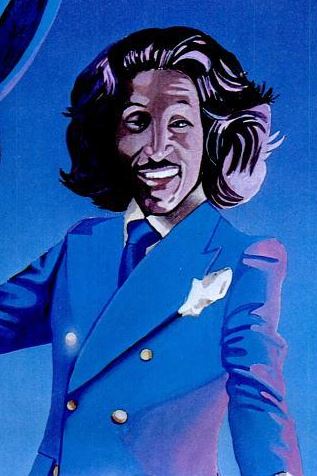
Introduction to Lesson 25
Coined by Frankie Crocker in 1974 as a synonym for Black music, "urban contemporary" began as a radio formatThe broadcast content of a radio station. for the music he was broadcasting at WBLS, the Black music radio station in New York-mainly rhythm and blues, hip-hop, rap, and disco. Other stations with medium to large Black communities in cities across the United States followed similar radio formatting/programming. Thus, "urban contemporary" became a term associated with music by and for Black people until June 5, 2020, when Republic Records announced that it was removing it from all its music material. Then, finally, it appeared the industry was serious about getting it right or at least was moving in the right direction when identifying specific African American music styles, genres, and representative artists.
The "urban contemporary" category is problematic for a number of reasons. First, the term "urban" describes city environments, implying Black people and other people of color mainly live in cities. While it is true that some Blacks live in the city, the term does not take into account the Black population in suburban and rural areas. Moreover, it implies that Black creativity occurs mainly in cities, thus disregarding Black innovation in other locations.
Two, the term "contemporary" may be helpful in certain situations. Still, time and the evolution of a style, people's tastes, and music marketing will generally influence people's idea of what is or isn't contemporary-today's contemporary is tomorrow's past.
Three, "urban contemporary" tends to obscure other styles such as rhythm and blues, hip-hop, rap, neo-soul, to name a few, all of which have contributed to the breadth of African American music. Finally, although Crocker's efforts helped disseminate African American music in mainstream American culture, "urban contemporary" fails to identify a specific style of music. Thus, we can conclude that the term is market-drivenWhen money or popularity of the masses determines how a given style or product is marketed., which, of course, was the original intention behind the idea of the radio format. And thus, it too fails to identify a specific style of African American music.
This lesson begins with a history of how market-driven terms and categories have been applied to African American music, followed by a discussion of the music styles and representative artists categorized in the charts as Soul, Hot Black, and Hot R & B between the 1970s and the 2000s and whether these terms are useful ones. We will frequently quote Billboard , an American music and entertainment magazine published weekly by the Billboard-Hollywood Reporter Media Group, because it is the industry's longest-running, most comprehensive, and authoritative professional trade journal.







